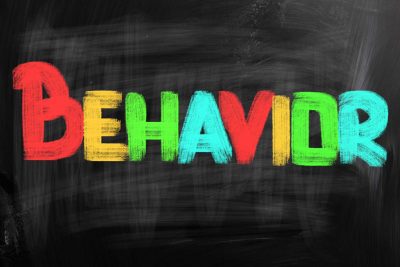A Brief Overview Full Article Behavior is a form of communication, and children often try to express their needs and wants more through behavior than words. When a young person has a disability or has experienced trauma or other distress, adults and authorities may need to put in extra effort to understand. Missed cues and Read More
Learning the skills to maintain expected behavior and follow school rules is part of education. All students learn social, emotional and behavioral skills. Students with disabilities may get extra help in these areas of learning. Some have individualized behavior support plans. When the pre-teaching and interventions fail to stop a behavior from causing a problem, Read More
A Brief Overview Full Article Students with disabilities who are bullied at school have legal protections, and schools have added responsibilities to ensure their safety and well-being. When acts of bullying involve discrimination based on disability, race, sex, or religion, federal agencies classify those acts as harassment. The Office for Civil Rights (OCR) and the Read More
A Brief Overview Full Article A student with a disability is protected by multiple federal laws. One of these laws is the Rehabilitation Act of 1973. This law is enforced by the U.S. Department of Education’s Office for Civil Rights. Section 504 is part of the Rehabilitation Act and it helps protect students from being treated Read More
A Brief Overview: Full Article The Procedural Safeguards are a written set of legal protections under the Individuals with Disabilities Education Act (IDEA) designed to ensure that students with special needs receive appropriate education. IDEA, implemented under Washington State law, requires schools to provide the parents/guardians of a student who is eligible for or referred Read More
A Brief Overview: Full Article: Rain or shine, “well behaved or not”, daily recess is a very important part of education for every child going to school. And now it is required by the new Washington State Daily Recess Law, RCWA 28A 230.295. When school days are 5 hours or longer, schools are now required Read More
Navigating the education system can be challenging for students with special needs and their families. Fortunately, the Individuals with Disabilities Education Act (IDEA) provides a robust framework to ensure that eligible students receive the support they need. IDEA is a federal law built on six key principles that guarantee specific rights and protections. The six Read More
A Brief Overview Full Article Summer provides an opportunity to reset for the school year ahead. If your child has a disability, you may want to think about what went well or what could have gone better last year. By getting organized, you can plan for fall and beyond. This article includes resources and information Read More
Getting the right help for students with disabilities is made easier when families learn key vocabulary and understand how to use it. PAVE provides videos to support learning about student rights and how to work with the school to get individualized support. Video number 1: Pyramid of Rights Protections for Students With Disabilities The first Read More
PAVE’s program called Parent Training and Information (PTI) helps family caregivers, youth, and professionals with questions about services for children and young people with disabilities, ages 0-26. PTI provides direct help, training for groups, and access to resources. Click Get Help to fill out the form, and PTI staff will contact you to talk through your situation and provide information, Read More
A Brief Overview Full Article A traumatic brain injury (TBI) is an injury that affects how the brain works. TBI can affect people of all ages and backgrounds. The exact definition of TBI, according to special education law, is referenced later. This injury can change how the person thinks, behaves, and moves. A traumatic brain Read More
A Brief Overview Full Article Everyone has moments when they hear something and pause to wonder, Is that true? Parents/caregivers in meetings with their child’s school can feel particularly confused when something doesn’t sound right. They might wonder whether it’s appropriate to question school authorities. They might not understand all the words being spoken. Fear Read More
Child Expert Ross Greene wants adults to rethink the way they support children who struggle with their behavior. He offers two reasons children behave in unexpected ways: Greene says about 80 percent of problem behaviors at school are due to academic struggles and the rest are related to social inadequacies. To help children make good Read More
A Brief Overview Full Article If a student is having a hard time at school and has a known or suspected disability, the school evaluates to see if the student qualifies for special education. A child is protected in their right to be evaluated by the Child Find Mandate, which is part of the federal Read More
Transcript of this video is below: When students with disabilities are bullied, schools are legally responsible to end the bullying. By law, schools must act to restore the safety and well-being of students who are harmed by harassment, intimidation, and bullying. Those words—harassment, intimidation, and bullying, make an acronym: HIB. This video is about HIB Read More

